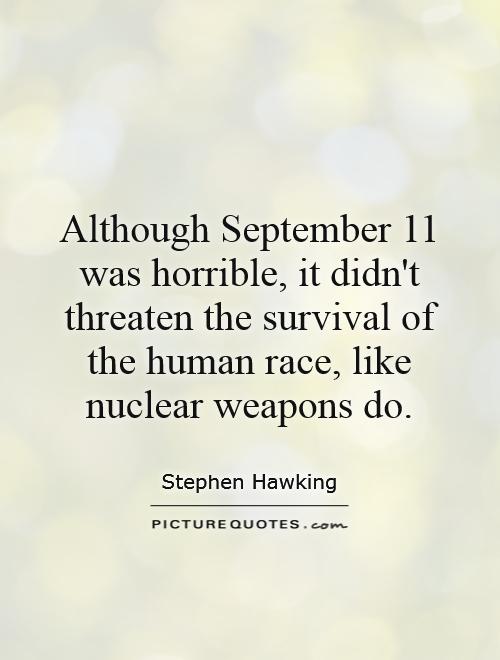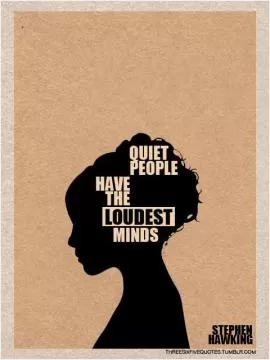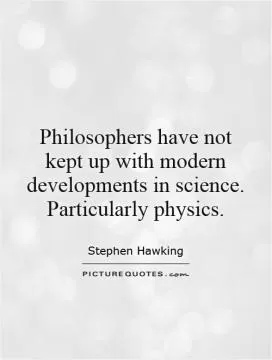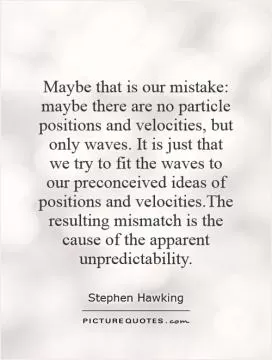Although September 11 was horrible, it didn't threaten the survival of the human race, like nuclear weapons do

Although September 11 was horrible, it didn't threaten the survival of the human race, like nuclear weapons do
Stephen Hawking, the renowned theoretical physicist and cosmologist, was known for his groundbreaking work on black holes, the nature of the universe, and the potential threats facing humanity. One of the most pressing threats that Hawking often spoke about was the danger posed by nuclear weapons.While the terrorist attacks on September 11, 2001 were undeniably tragic and had a profound impact on the world, Hawking argued that they did not pose an existential threat to the survival of the human race in the same way that nuclear weapons do. The destruction caused by the attacks was devastating, but it was localized and did not have the potential to wipe out all of humanity.
In contrast, nuclear weapons have the power to cause widespread destruction on a global scale. The detonation of even a single nuclear bomb could have catastrophic consequences, leading to mass casualties, environmental devastation, and long-term health effects. In the event of a full-scale nuclear war, the consequences could be even more dire, potentially leading to the end of civilization as we know it.
Hawking warned that the continued existence and proliferation of nuclear weapons posed a grave threat to humanity's future. He believed that the only way to ensure the survival of the human race was to eliminate these weapons entirely. In his view, the risk of accidental or intentional nuclear war was too great to ignore, and urgent action was needed to prevent such a catastrophe.
Hawking's warnings about the dangers of nuclear weapons were rooted in his deep understanding of the laws of physics and the potential consequences of human actions. He believed that it was essential for world leaders to work together to reduce the threat posed by these weapons and to prevent their use in any circumstances.












 Friendship Quotes
Friendship Quotes Love Quotes
Love Quotes Life Quotes
Life Quotes Funny Quotes
Funny Quotes Motivational Quotes
Motivational Quotes Inspirational Quotes
Inspirational Quotes